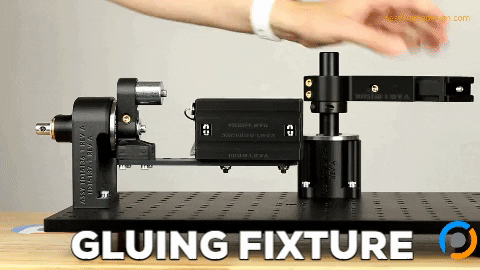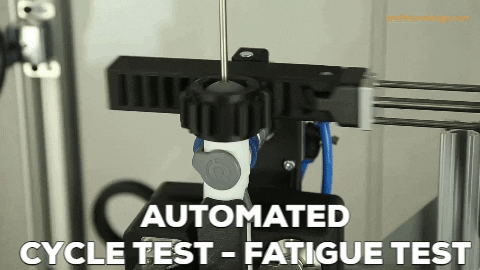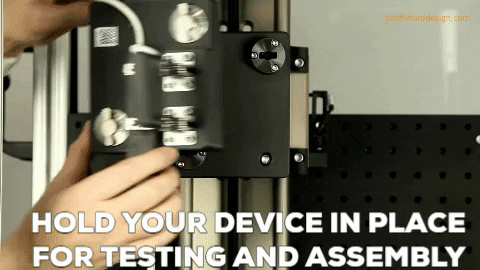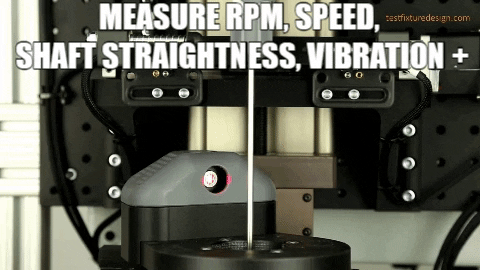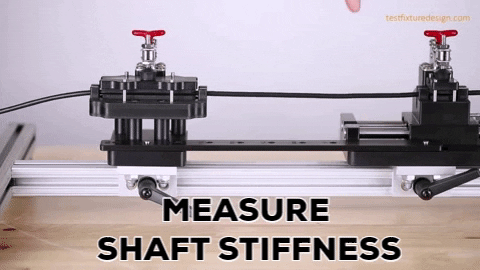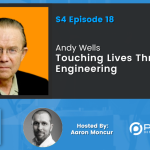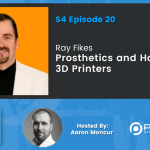Sarah Bilger | How Not to Give Up, & Time Management Strategies
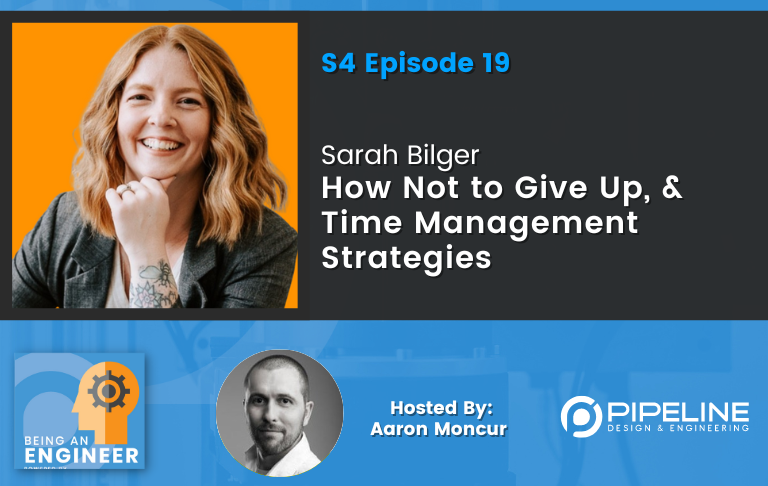
Who is Sarah Bilger?
Sarah Bilger has over 7 years of experience in Mechanical Engineering and holds a Bachelor of Science in Energy Engineering. Some of the tools Sarah has developed over the years include managing multiple complex projects simultaneously, working as part of a team, and time management and organizational skills. She is also passionate about helping others pursue a career in STEM and advocating for inclusion and representation of women in the industry.
https://enteringmotherhood.podbean.com/
Aaron Moncur, host
EXPAND TO VIEW EPISODE TRANSCRIPTION
Presenter 00:00
Hi everyone, we’ve set up this being an engineer podcast as an industry knowledge repository, if you will, we hope it’ll be a tool where engineers can learn about and connect with other companies, technologies, people, resources and opportunities. So make some connections and enjoy the show. I was
Sarah Bilger 00:18
like to have, like, I don’t know, if I have what it takes to do this, this is hard, like, this is a lot of work. Like, you know, I’m trying to juggle it all. And I don’t know if this is like meant for me. And he was like, listen, you’re gonna get through this. And at the end of the day, you’re gonna have that degree and you’re gonna hang it up on your wall and you are going to be an engineer, and nobody can take that away from you.
Aaron Moncur 00:53
Hello, and welcome to another episode of The being an engineer Podcast. Today, we are talking with Sarah Bilger, who has over seven years of experience in mechanical engineering and holds a Bachelor of Science in energy engineering. Some of the tools Sarah has developed over the years include managing multiple complex projects simultaneously, working as part of a team, and time management and organizational skills. She’s also passionate about helping others pursue a career in STEM, and advocating for inclusion and representation of women in the industry. Sarah, thank you so much for joining us today.
Sarah Bilger 01:30
Yeah, thank you for having me. Glad to be here.
Aaron Moncur 01:33
All right. So first question. Same when I asked everyone, what made you decide to become an engineer?
Sarah Bilger 01:40
Yeah, I love this question. And I think for me specifically, I always was an engineer to some degree. But it was really a matter of recognizing that and seeing like how my qualities and traits made me a good example of someone who should pursue engineering as a career. So I think like, you know, many engineers, like we’re good at math and science, like, that’s what we’re going through school, and we’re hearing like, oh, like, you’re good at math and science, you should, you know, pursue something that has to do with that. And it was actually my grandfather, who had said, like, you should be an engineer, like really into math and science, you need to go in into engineering, and probably that was about like, ninth grade or so. And he was very into the news and reading newspaper articles. And he had said, like, you know, our future needs people to be engineers, like, we need people to pursue this career. And I think you would be great for it. And there’s so much technology and innovations going on that we’re going to need more people who are into things that you’re into, to go out and do do that. And I think that’s really, you know, ultimately, what made me want to professionally pursue being an engineer. But yeah, that’s awesome. Yeah.
Aaron Moncur 03:05
Great. Yeah. Were you into building things at all, when you were growing up as well?
Sarah Bilger 03:11
Um, not so much, I would say like hands on building things, but really problem solving. And I had like, a very high attention to detail. I think, for me, it was a lot more like creativity and drawing, that I enjoyed more. Really kind of, like expressing that like, very fine details and looking at things differently. You know, being in the science, and just naturally, I think being gifted in math. Yeah.
Aaron Moncur 03:41
Yeah. That’s the great thing about receiving an education in engineering, I think is it helps you learn how to problem solve, right. And once you kind of have that framework for yourself a problem solving. It’s almost unlimited. What you can do with with that background and training.
Sarah Bilger 04:03
Yeah, and I think for me, specifically, it was a little bit more difficult. So having that like determination and resiliency, and, you know, wanting to continuously pursue it also made me better overall, like now with projects and just, you know, again, like problem solving and getting the work done. I’m not afraid to fail at something I’m not afraid to continue to figure out like, how can we make this better? And I think that was something that I really had to be okay with and like, build my confidence while I was in college.
Aaron Moncur 04:39
Yeah, we have a sign actually in the hallway here at pipeline that says, persistence, beats brilliance. And I’m not saying that you’re not brilliant, Sarah, I’m sure you are. But nine times out of 10. What I’ve seen is that the engineers who really have that tenacity, who are willing to spend the time to keep you know, banging their head against that problem. They’re the ones that figure it out, not necessarily the smartest, quote unquote smartest engineers, whatever that even means.
Sarah Bilger 05:05
Yeah, yeah, I agree with that.
Aaron Moncur 05:09
Well, you work at a company called IPs, which is in the I don’t even know if I’m categorizing it quite right, the construction industry, which is not my industry, so please forgive me if I mess up this description. I think what IPS does is develop commercial buildings with complex infrastructure is that more or less what you folks do?
Sarah Bilger 05:32
So IPS stands for Integrated Project services. And it’s a consulting service that includes architectural engineering project controls, construction management, and cGMP. practices and Compliance Services. So we’re really kind of this all encompassing group. And we mainly focus on assisting clients with developing and manufacturing life impacting products. And it’s mostly in the biotechnical and pharmaceutical markets.
Aaron Moncur 06:04
Okay. And these are buildings that you’re constructing right, developing, like large facilities.
Sarah Bilger 06:11
Yeah, most of the time, they are large projects that we’re we’re working on and designing and then ultimately constructing as well. It’s a full encompassing service.
Aaron Moncur 06:21
Got it? Okay, so these are big, long projects, not something that’s happening in a few months.
Sarah Bilger 06:27
Yeah, yeah, most of them are very large projects. We are now actually part of the Berkshire Hathaway company. And we have well over 3000 employees, 45 different offices, you know, over 17 different countries. And yeah, it’s, it’s a big company,
Aaron Moncur 06:50
did you start your career there?
Sarah Bilger 06:52
I did, I actually pivoted and switched, I had moved to South Carolina from our headquarters, which is in Pennsylvania. And at that time, I was working remotely, but it wasn’t something that I could pursue as a full time employee. And then with COVID happening, and things adjusting to having remote workers, I had switched back over after a while. So I’m what they call a boomerang and the company.
Aaron Moncur 07:25
Well, wonderful. All right, I was thinking about the process that must be involved in constructing a large facility, right, especially with all the complexity of the infrastructure and, you know, routing, electrical and plumbing and, and all of that stuff. And, and then I was thinking about the projects we do here, which is mostly custom, the equipment that we’ll build, sometimes it’s like benchtop, size, sometimes the standalone automation cell. And even with these projects that we take on, which are usually, I don’t know, anywhere from like two to 10 months, right? Generally, it’s a lot of work to plan these out and figure out what the schedule is going to be, and the budget, and then to execute all of that stuff. And what you folks are doing is like exponentially bigger than that. What what is the process like for an architectural development, a construction project like this? Is it? Is it kind of the same process, as you might see in like, smaller engineering project, just more of everything? Or do you have very specialized tools that you use?
Sarah Bilger 08:34
Yeah, I would say it’s just a larger scale. me specifically, I work in the mechanical department, HVAC engineering. So there are a lot of different departments, a lot of different people a lot of different factors that all tie into these projects. And I’m more so specifically focusing on, you know, generating different calculations for our room loads all the heating and cooling calculations, pump head calculations, we’re using software like Revit and CAD, you know, we have spreadsheets that we utilize, and other computer based software and programs. And me specifically, I’m laying out our ductwork and making sure that I’m not clashing with our electrical and our plumbing. And, you know, looking at where our architects have set walls and where our structural team has have has beams, and things like that, like we are all coordinating within mostly, I would say Revit models, and incorporating that making sure we’re refreshing it making sure we’re reloading it if I’m dropping in mechanical equipment. I’m letting them know hey, this is new. We’ve shifted it over 10 fi or, Hey, like your lighting is clashing with my returned like ducts and stuff. So It’s a lot of coordination. But there’s a lot of team members. And we’re all kind of rechecking and having systems in place, using using a lot of clash detection, to make sure that we’re not having things where they shouldn’t be. And there’s not two things in multiple locations, and really taking the time to coordinate that having a lot of internal meetings, having a lot of meetings with clients. It’s just I think, overall, like a more extensive timeline and constructability, I would, I would say, then, yeah, smaller scale projects.
Aaron Moncur 10:43
Okay. What is the split, like between the design portion and the build portion? I think of, again, what we do, and I don’t know, maybe on average, they’re about equal he spent 50% of the time designing and 50% building, is it roughly the same in your industry? Or is it very different?
Sarah Bilger 11:02
I’m not entirely sure. On on that process. And I mean, I have only been with the company for a short, I mean, I say, a short period of time, but there has been people that have been there longer. But I mean, there will be projects that we have completed design, and I’m sure they are still some of them being constructed to some extent, or a lot of the times we’re consulting a company and allowing them to see maybe what it would cost or what it would look like or what that timeline would look like. And then they get placed on hold. So it’s a it’s a lot of different, you know, depending on the client’s needs, depending on what they want. Specifically, I think that also adjust the timeline.
Aaron Moncur 11:57
Are is the design portion of a project? Is that usually measured in years for the stuff that you work
Sarah Bilger 12:03
on? Um, I guess some of them, some of them, like I would say, have been? Oh, yeah. Like yours?
Aaron Moncur 12:13
Depends on the project, maybe? Yeah. Yeah, that makes sense. Okay. I’ll take a real quick break here and share with the listeners that Team pipeline.us is where you can learn more about how we help medical device and other product engineering or manufacturing teams, develop turnkey equipment, custom fixtures and automated machines to characterize, inspect, assemble, manufacture and perform verification testing on your devices. Today, we are speaking with Sarah Bilger, Sarah, you’re an advocate for women in STEM, what what are some of the problems that you observe that your male counterparts may not even realize are problems?
Sarah Bilger 12:53
Yeah, and I guess I wouldn’t like to even call them problems. It is just I think, sometimes a lack of just communication between different groups of people. And you know, specifically for women, I think we are not typically seen in the role of being an engineer. So I think a lot of the times, as a female in engineering, I have walked into a room. And there are not people that look like me. And I know that there are, you know, different situations that that is going on. But going into college, you know, wanting to pursue engineering, I don’t think the magnitude of it had really set in to me, I didn’t really know what it was like to be an engineer before that. And so I had never been in an engineering office, I had never, you know, known anybody that was an engineer, I wasn’t familiar with what it was going to be like. So I was very surprised, going into my first engineering class, and being one of very few women in that room. And so I think you’re kind of automatically standing out, you’re automatically different than a lot of people that are in that room. And I feel like in a way, sometimes you feel like you have to prove yourself to be deserving of that spot to sit in there. And I feel like there’s just a lot of confidence building that you have to go through and a lot of self reflection on who you are as a person and why you want to pursue this career because it is hard to be that person in the room where nobody else looks like you and you do feel kind of left out automatically. And not that like maybe any of those men are in there thinking that like maybe they’re you know, not even noticing or not even acknowledging it, but you I think are thinking it the hardest Just because because you are aware of it, you’re very hyper aware of the fact that you are the only person sometimes in the room that is a female. And I think a lot of the times, it might also be misunderstanding that, you know, an engineer can look and act different. And we don’t have to fit into this stereotype of what it means to be an engineer necessarily. And I think, subconsciously, there might be some, you know, bias going on of like, what a woman is capable of, or because you haven’t seen somebody in this profession, doing the work that looks like that, I think it can be sort of hard to envision that, like, if you close your eyes, and you know, you tell a group of 100 people, or the you tell them to close their eyes, and you say, like, Okay, imagine an engineer just walked into the room, they’re initially not going to thank me, I’m not going to think me. And I, I think it’s just kind of, you know, placing yourself in that mindset and saying, like, what does it truly mean to be an engineer? And what does that person look like? I think it’s more so personality traits, it’s more so you know, the way that you like to learn the way that you are as a professional, I think those things factor in more of, of what an engineer is an even, you know, using language like saying, Guys, like you’re in a meeting, and you know, you might be like, Alright, guys, like, let’s go, like, Let’s get together, you know, some people might take offense to that, that you are almost generalizing the group. I mean, I come from up north, so you guys like guys, that’s very common, slang use of words, but when, you know, you’re, you’re sitting in that room, and you are the only girl, woman female and you’re hearing like, Alright, guys, like, let’s go over here, it might not be as encouraging or reinforcing, to want to participate when you do feel like you’re not being included. And I think that’s just sort of, you know, trying to, like, be aware of it, but also not overcompensating for it. Because like, I’ve also been in meetings that people have said, Oh, you guys, and then they’re like, Oh, I mean, ladies and gentlemen, like everybody, all of you, and they try to like, over, over correct themselves. And then I think like, that draws more attention. So I think it’s just like, you know, understanding that, like, we don’t have to fit this certain mold, or we don’t have to, you know, be a specific person in order to be an engineer, and really kind of then collectively, like demonstrating that to our children as well. And like being able to pass that down and let them see like anything is possible, because I think we need to sometimes see that other people are doing something that we might think is unattainable or, or not possible in order for us to believe that it is. And I think naturally, men have just been engineers longer. So they have had a greater possibility of that being what it means to be an engineer and fit that. Tight.
Aaron Moncur 18:50
Sure. Yeah. Yeah. You mentioned how tough it was going through school, you walked into your first class and kind of the reality of the situation hit you. What was the process? Like getting through that? Was there? Were there specific incidents that occur that made you think to yourself, Okay, yeah, I can do this. And this is how I get past it, or was it just kind of a gradual thing that, you know, happened over time? And maybe it still is happening? I don’t know.
Sarah Bilger 19:17
Yeah, I think for me a little bit uniquely, I was mostly raised by my dad, my mom had passed when I was very young. So I think having that, I guess, upbringing of mostly having my dad and him being like, you know, very work driven and willing to kind of like, allow me to not take any BS, if you will. I think his like determination and his confidence kind of like allowed me to have the permission to have that as well. And I think that was sort of ingrained in me like look, I’m here to I’m doing the Same coursework, I’m doing the same classes, I’m, you know, in the same position you are, you know, like we we both got here, we’re both doing this, and I have every right to be here as well. And I do specifically remember calling him one time though, when I was like dad, like, I don’t know, if I have what it takes to do this, this is hard, like, this is a lot of work. Like, you know, I’m trying to juggle it all. And I don’t know if this is like meant for me. And he was like, listen, you’re gonna get through this. And at the end of the day, you’re gonna have that degree and you’re gonna hang it up on your wall, and you are going to be an engineer, and nobody can take that away from you. And I think it was really just kind of like getting that. I’m trying to think of a word for it, but like, reassurance that like I can do this, and that it was okay for me to pursue this, even if it was going to be difficult. And having somebody that believed that I could do it, I think really helped.
Aaron Moncur 20:59
That’s a big deal. I had a similar experience. When I was, I don’t know, maybe a sophomore or junior, I just taken a test and I did horribly on it. And I was feeling overwhelmed. Like this is so hard disk coursework. I am not your like quintessential engineer that just gets all the formulas and can whip out the physics and the fluid dynamics school was hard for me. So anyway, I remember this one instance, when I had done poorly on a test, I was feeling overwhelmed. And I remember this, this guy I grew up with one of the A friend of mine, his his dad was an engineer. And he had told me before I went off to school, he said, Hey, the school is really hard. So don’t let that discourage you just know that once you finish, like the actual job of being an engineer, is not as hard as the schooling is. So just get through the schooling, you’ll be okay. And at the time was like, okay, whatever, you know, I don’t know why you’re telling me this, but sure. Okay. And then I had that that, you know, situation where I was just, I was almost like, oh, maybe this isn’t for me, maybe I can’t do it. And I remembered what he said it was like, oh, yeah, okay, this is what he was talking about. Okay, just push through it, and it’ll, it’ll all be okay. And it was so having those words of reassurance from people who have been there done that, or, you know, have some wisdom to share? That’s, that’s a really big deal.
Sarah Bilger 22:23
Yeah, yeah. And I think a lot of the times, it is sort of, if you don’t have that person, kind of giving you that confidence, if you don’t see it being possible for you, it is very easy. I mean, it’s, it’s easy to give up, it’s very easy to just be like, Okay, I don’t want to do this anymore. Like, let’s throw in the towel I tried. But it’s hard to know that you might fail a class, it’s hard to know that, you know, you’re not going to get something right away. It’s it’s hard to put yourself through that and really have to push yourself and challenge yourself, in order to get something that you want. It’s not an easy route for some people, maybe, you know, classes are a lot easier. And they’re, you know, breezing right through it. But I think like, you know, going back to that quote that you have on the wall, it’s really just like consistently trying to, to push and continue to go down that route, if that’s what you want. I think engineering is a is a long career, you know, a lot of professions, you really have to work consistently going towards one main objective, and you’re leading yourself down that road, and you have to continuously I think the asking, you know, like, why you want to do this? And what really motivates you to continue to do it.
Aaron Moncur 23:47
Going back to women in STEM, specifically, if you could write one thing on a billboard, that millions of other engineers, we’re going to see, what do you think it would be?
Sarah Bilger 23:58
Yeah, this, this question, I think, is really hard to just choose again, there’s so many different things that you can think about what’s
Aaron Moncur 24:06
today, one of the things that you put up there?
Sarah Bilger 24:12
Yeah, you know, actually, I’ll bring up this story. My husband showed me this video the other day, and he was like, oh, like, you have to watch this video. Like, I don’t know if you saw it before, but it’s this box, and it had all these shapes kind of cut out on the top of it. And they started out with a cube and they’re like, Okay, like, what shape does the cube fit? And of course, you’re like, oh, this square, like, I’m gonna put the cube through the square. And then they’re like, Okay, we have a cylinder, what shape does this cylinder fit in? And you’re like, Oh, the circle, like put it in the circle. And he puts it in the square. And you’re like, Why in the world would you put it in the square like it’s supposed to go in the circle, and he continues with like, all these little wooden pieces, and he’s putting them In the square, and they’re, you know, a triangle and an arch, and they’re all perfectly cut out, you know, obviously, probably an engineer put this together. They’re all perfectly fitting into the square that’s on this box. And I think, you know, like that really kind of hits for this. And it could just be like, you know, like, if a cylinder can fit through a square, then like, you can be an engineer.
Aaron Moncur 25:27
I like that analogy. That’s fine. Yeah,
Sarah Bilger 25:30
I think yeah, just like rethinking like what’s possible and understanding like, it can be multiple different solutions to problems.
Aaron Moncur 25:40
Yeah. Okay. All right. My next question here, if this is too personal, or you don’t feel like talking about this totally fine. Just tell me to shut up. And we’ll move on to the next one. But I’m curious about how having kids changed your professional career. And as I was writing this question, I thought to myself, if if Sarah was a man, would I ask her this question? And I think what happened for me was, this is terrible. I will freely admit this. Like, my initial assumption was like, Oh, the women stay home and take care of the kids. So obviously, when you have kids, that changes thing a lot, but of course, that’s just not true. Right? I mean, it is for some people, but certainly not for everyone. So if you’re willing, would you be comfortable talking about what that transition was? Like? Yeah, I mean, I
Sarah Bilger 26:32
love that you acknowledge that, because I think it is true. I think a lot of the times, you know, when man will have a baby, you know, you’ve even seen it like in the workplace, or, you know, just in the profession or other professions as well. Nobody really bats an eye, if he’s gonna stay at work or not, it’s never a question. It’s never really like, oh, like, are you going to stay home with the kids now? And that was something that I was sort of kind of, like, hit with or face, like, when I was pregnant with our first like, Okay, are you going to stay home for a couple of years? Or oh, like, you know, what does this look like for you now, and I mean, mind you, motherhood has changed me completely. But when I was pregnant with my first I was like, Oh, heck, yeah, like I’m coming straight back to work, like, it’s going to be no problem, I am just going to continue doing exactly what I’m doing. But we’re going to have a baby, and anybody that has had children, knows that you can’t just plop a baby into your life and things are going to be the same. But I was still very determined to return back to my career and pursue being an engineer, because this is something that like I feel passionate about. And I feel like if I’m not willing to continue to be an engineer, while also being a mother than who is, and we need to have that represent representation, I think, you know, there are products out there that engineers are making for mothers, and if we don’t have mothers, being the engineers that are creating those project products, then we’re not really going to be able to have that representation, and that, you know, creativity behind what it takes to make those items. And, you know, it really is like a very small portion of engineers in general, that are female. And statistically, like, I don’t even know what the facts are, for how many mothers are engineers, I don’t, I don’t know if anybody’s ever conducted that, if anybody’s like really kind of, you know, created that, but I’m sure it’s drastically lower. And even, like, once you get to a certain age, you know, like, how many years are you? Are you staying in there? You know, and then as you have more kids, what are the chances that a mom of two kids, three kids, four kids is, you know, still pursuing that career. And I think it’s important for us to continue to advocate and fight for that and see what it’s like to be able to juggle all of that. So we can see what that work life balance really looks like, and how we can accommodate people that have children, you know, not just for women, parents as well. I think parents want to be with their children, they want to be able to attend field trips, and after school activities and, and do all those things. And as they get older, you know, participate in all of that. And in general, kids get sick a lot when they’re young, you have to have, you know, proper childcare. And there’s a lot that kind of really goes into it. I mean, like you could you could really focus a whole episode on what is going on with just careers in general and childcare. For sure. Yeah. Yeah, I think I think it’s important to acknowledge like, would I ask this question, if, if I was a male like, Would you be How do you do at all? Like you have kids and a career? Why? I think it’s really sort of like one of those things where it’s like, like, nobody asked my husband that and he’s an engineer as well. Like, you know, nobody kind of questioned like, oh, like how long you’re gonna take off? Like, what is this mean? Like, like, what do you need? Like, what is this gonna look like?
Aaron Moncur 30:22
It’s totally not fair. Yeah,
Sarah Bilger 30:24
yeah, it’s, it’s a lot sometimes to be having to again, like, it’s just you feel like you have to then to like, almost like overperform like, oh, I have to, like, you know, prove that like I’m supposed to be here to and that I can like do it all. Whereas I think even you know, somebody with kids or without kids doesn’t have that pool.
Aaron Moncur 30:49
Do you think that has strengthened your resolved or, in some ways made you an even stronger person just knowing that you kind of have to put up with some of that nonsense and and get through it?
Sarah Bilger 31:01
Yeah, I mean, I think it definitely kind of like woke me up to just like, life outside of my own little bubble. I think I’m more passionate about kind of trying to understand different cultures or different environments, different people’s backgrounds, and really see like, where they’re coming from. Because I think a lot of times, we do just make assumptions based on our own personal experiences. And so like, being pre kids, and after kids, I kind of look at myself, like, Oh, my goodness, like, I can’t believe I ever said something like that about like somebody that had kids and like, now I’m in that position. And so like having that complete, like, I’m still the same person, but I’m in a whole different experience and having that happen, you know, staying in the same career path, like staying in the same environment. Other than that being a different factor. It’s kind of like, allowed me to see that other people have different experiences. And we have to kind of be aware of that.
Aaron Moncur 32:08
Yeah, the context of our lives really changes our perspective, doesn’t it? Well, let me switch gears a little bit here. You have been in the past involved in a variety of volunteer work. I’m curious about how that got started, what what were the motivating factors? And why did you continue with it for whatever period of time that was?
Sarah Bilger 32:31
Yeah, I mean, in college, I was involved with a lot of different activities and stuff, I think, just naturally, I’m a social person, I like to kind of form groups and communities and really just get to know other people in general. And I, I guess, my mom who had passed, like I said, she passed from cancer. And so I think that kind of helped me find a community, like, the one that I was involved with, specifically in college was for pediatric cancer, and really, like helping families in that sense. And I think, you know, like being a family that was affected by cancer, I wanted to give back and kind of like, help out in that sense. And I felt connect it to it in a way because I had a experience that I felt, you know, was connecting to that. But again, like it’s, it’s a different now, like I said, like, you know, having kids like, it’s yes, I lost a mother but losing a child, I feel a whole different perspective of now as a parent myself. And to know, though, that there’s these college kids who, majority of the time none of them have kids, and they are, you know, passionately involved with helping families that have been experiencing this. Yeah, it’s just like, awesome to see and something that like, I always felt kind of called to be a part of and like, want to be around other people and just big groups and, and experiences.
Aaron Moncur 34:16
So Sarah, you mentioned in your LinkedIn profile that you have developed excellent time management and organizational skills. Can you share a few like pro tips that you have with us for time management and or organization? Sure, yeah,
Sarah Bilger 34:32
I am a huge fan of time blocking. If you don’t know what that is, is basically just kind of like taking chunks of time and saying like, during this time, I am specifically working on these tasks. So kind of like breaking up your day. In general, if you do the same tasks or you know, working on like multiple different projects you’re allocating, like, from nine to 10. I’m working on this project from 10 to 11. I’m working on this project. or, you know, if you’re only on one project, you’re splitting it up to multiple different tasks like, you know, you’re working on drawings, you’re working on duck layout, you’re working on specs like you’re, you’re splitting it up into, like your tasks and dedic designating, you know, a specific time for that period and also time tracking. So maybe if like, you don’t even know where to start, like, Oh, what am I blocking off? On my time? You can track like, what am I actually doing with my time? And how am I utilizing my time because I think a lot of the times, we have more time than we think that we do. And you could be kind of trailing off or getting lost in different tasks or spending more time than you need to on something that might not need to take as long as it does, and kind of just efficiently making your own, I would say like structure of how you’re going to do something, and then perfecting and just kind of like getting better as you go by like maybe you know, you have a track of like lessons learned or like, if I need to do this, again, I’m going to you know, make sure I start with this, instead of setting it up a different way. So that you can kind of learn from that experience and say, why it took you that long, or how you could kind of make it be more efficient of a process. And then in general, I think I’ve always just been very, very organized. I like to keep things like in very like specific folders and very specific files, I’m usually kind of like dating things certain ways, but also trying to think of it as if somebody else needed to take over this project. Or if somebody else needed to look at this, and I wasn’t there, or maybe it’s like coming back to it years later, or you know, like somebody else is looking at it. A lot of times engineers, you’re passing it off to other people, you know, they need to be able to evaluate it and look at it. So kind of approach it in a way of if somebody else was looking at it, or if I wasn’t familiar with the project, what would I need to know about this? And like, How can I structure it to be more more seamless of a presentation that somebody else that doesn’t know about the project can understand. Because if you’re coming into a project folder that is just all thrown together? I think we all know what kinda like that’s like, and you’re like, Yo, like, what did you do here? Like, why is it all over the place? Like, where do I even start. And so I think like making it easy for somebody else to pick it up. If like, you’re not the person there and kind of saying, like, that’s how you’re going to organize your projects is a lot easier for you to then have a system to structure and then a lot easier for somebody else to comprehend if they’re looking at it. And I’ve always also been like a very paper planner, of a person I have like my actual planner that I thoroughly write down, you know, dates for things, deadlines for things appointments. I think, you know, being a mom to like that really helps structure like what day is what for the kids or when this is when that is and marking those things off, like on your calendar and making people aware of those appointments and things. I love school supplies growing up, I love office supplies now. You know, like a good quality pen.
Aaron Moncur 38:35
There you go. I really like the mindset that you have of if if someone else was going to take over this project, what would I do to keep everything organized, and then just working like that, even if no one else is going to take over? That’s a great, that’s a great strategy. And time blocking another excellent one. I have my calendar, pretty much every day is like full of stuff. And you might look at it and think Wow, he’s really, really busy. When in reality, I’m not really much more busy than anyone else. I just like to fill out the calendar, so I know exactly what I’m working on at what time. Anyway, great suggestions. love both of those. Last question here and then and then I think we’ll wrap it up. Specifically within the context of your role as an engineer, what is one thing that frustrates you? And conversely, one thing that brings you joy?
Sarah Bilger 39:29
Yeah, I mean, I think we just had a very specific example of what frustrates me, but a lot of the times it’s troubleshooting or you know, dealing with the software or programs that are supposed to be really awesome, amazing tools and for the most part they are but when they aren’t doing what you want it to do or if you’re not putting in you know, like they say like garbage in garbage out like if you’re not putting in the correct numbers or you know, utilizing it in The best way that it needs to be, you’re not going like you can’t just put in random numbers, and it’s going to give you what you need. You need to intuitively be working together with it. And sometimes back checking a lot of these calculations that some of these projects are giving us, like, we just had energy analysis that we were working on. And it was kind of like automatically populating some numbers. And we were like, trying to figure out like, Well, why did it auto populate it here for this reason? And not over here? And what is what is it thinking that we’re trying to tell it that it’s doing this because we don’t want it to do that we wanted to show something differently. And because we know what those answers are supposed to look like, because we know what the output is supposed to be, we can kind of like interpret it. But if you don’t know, you know, a general ballpark of what you’re supposed to be getting, you can be putting in, you know, that information, and it’s going to give you an incorrect answer to what you want to truly solve. So I think really like navigating some of this technology and some of the software and I, I feel like that’s going to continuously be something that we are, are always doing, especially with like more technology, more things that come out, we have to, you know, look at it and say like, is it doing what we truly want it to do? And so I think that’s like the biggest frustration.
Aaron Moncur 41:20
Yeah. Well, great. Sarah, is there anything else that we haven’t hit on that, that you’d like to talk about? Before we sign off here?
Sarah Bilger 41:29
Did you asked like that full question, like, what brings you joy?
Aaron Moncur 41:34
Yeah, just pass that one over? Not so I wasn’t gonna say anything. But yeah, the second part
Sarah Bilger 41:39
was just like reading through my notes. And I was like, Yeah, so what really brings me joy to and a project is being able to present it in like a finish site, I think nothing’s better than having complete drawing sets, or, you know, completing a project and having something that you can, you know, successfully present to a client and be like, Look at what I have, like, look at what I’ve completed for you, because I think that like sense of like, accomplishment, and finally wrapping something up, even if it’s just, you know, an issue set, it’s not like the final set, but it’s just, you know, coming to a stopping point, like hitting a mile mark, you know, really just completing, like, one specific task, I think that brings me a lot of joy to be able to see, you know, even if it’s little baby steps, and make maybe you’re making a list of things in your, in your task box that like, you know, you’re just taking those little tiny baby steps, like even just sending an email, you know, like, making sure that you’re accomplishing something, I think that brings me joy, just knowing like, okay, like, I didn’t get done, you know, maybe this or maybe this, like stalled or, you know, took longer than expected, but at least I kind of like did this one thing, and I feel really good about it. And being able to like, be proud of the work that you’re presenting, I think brings me joy.
Aaron Moncur 43:01
That’s great. As you were talking about the like having all the project documents finished and packaged together ready to hand over to a customer, I thought about drawings, mechanical drawings, right to get something fabricated. And a lot of engineers don’t love doing the like the documentation side of engineering. And I would include myself in that camp generally. But there is something oddly satisfying about like having this drawing package and being able to just give it to someone and have that that drawing package that documentation, so complete and so thorough and so clear, that someone else who knows nothing about the project can go off and build this thing, you know, down to the 1,000th of an inch, at least for what we do, and send it back that that to me is it brings me some joy.
Sarah Bilger 43:51
Yeah, I think for me, like when I started out with a complete blank floor plan, and then here I am putting in all this duck work and making sure all the elbows and the takeoffs and all the connections to the equipment and everything slowly just starts to piece together. And maybe you have like a really confined space to that you have to, you know, meet like, hey, like we only have three feet to work with hear or something like that, and being able to be like, Hey, I figured it out. And I put all that in there and look at how cool it looks.
Aaron Moncur 44:21
Yeah, absolutely. Yeah, that’s great. All right. Well, well, Sarah, I think we’ll wrap it up here. Now you you have your own podcast. And the question. I usually ask people at the end of these, how can others get a hold of you? So if you can, if you want to share something there, maybe it’s just LinkedIn or whatever. But also, tell us a little bit about your podcast and where listeners can go to experience that?
Sarah Bilger 44:47
Yeah, so wherever you’re listening to this podcast, you should be able to find mine which is called entering motherhood. And it really is a journey of me kind of navigating motherhood and what that has looks like and what I have learned, you know about myself about, you know, the process in general and really just uncovering everything that, that you that you go through and becoming a parent in general. But specifically, I feel like it was geared towards, you know, being a mom, but I think it’s very practical for for all, all parents in general just like navigating what it means to become a parent. Awesome. So you can you can find me there. Yeah, LinkedIn as well. I’m on LinkedIn, Sarah Marie builder. The website for the podcast is entering motherhood.com Or I am on Instagram as well.
Aaron Moncur 45:43
Terrific. That’s wonderful. All right. Well, Sarah, thank you so much for joining us today. Best of luck, both with the career and the podcast. And I just really appreciate you sharing your experience with us today. Thank you.
Sarah Bilger 45:58
Thank you for having me.
Aaron Moncur 46:03
I’m Aaron Moncur, founder of pipeline design, and engineering. If you liked what you heard today, please share the episode. To learn how your team can leverage our team’s expertise developing turnkey equipment, custom fixtures and automated machines and with product design, visit us at Teampipeline.us. Thanks for listening
About Being An Engineer
The Being An Engineer podcast is a repository for industry knowledge and a tool through which engineers learn about and connect with relevant companies, technologies, people resources, and opportunities. We feature successful mechanical engineers and interview engineers who are passionate about their work and who made a great impact on the engineering community.
The Being An Engineer podcast is brought to you by Pipeline Design & Engineering. Pipeline partners with medical & other device engineering teams who need turnkey equipment such as cycle test machines, custom test fixtures, automation equipment, assembly jigs, inspection stations and more. You can find us on the web at www.teampipeline.us





